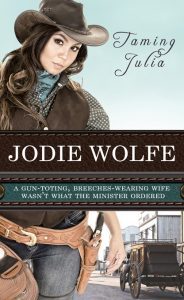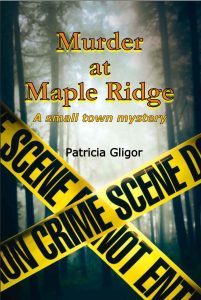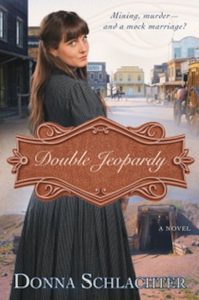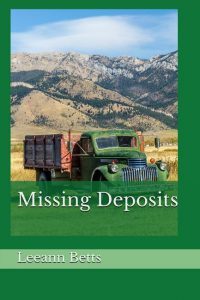James R. Callan's Blog, page 4
December 21, 2020
The Vanishing HorseMany years ago, I wrote a blog about a...
Many years ago, I wrote a blog about a special Christmas gift I got for the kids. I’ve been asked to repeat it this year. Since this is a difficult year, and a very difficult Christmas season, I am repeating the story. I hope this brings a smile to your face. Most of all this year, we need to remember the good things of the past and not let the problems of today blind us to the good things we have experienced.
My second Christmas in Connecticut promised to be special. I had bought the house on Great Hill Road just a hundred feet from a quiet lake with maple, birch and spruce trees growing almost to the water line. The kids had ten free days to enjoy The Dolphin, a small row boat which they had helped refinish and paint, and which they could easily manage. If it turned cold enough and the lake froze, the ice skates would come out. And, though they didn’t know it, they were going to have a spectacular gift.
Earlier in the month, after considerable research, I traveled into central Connecticut to look at horses. The selection process proved to be  complicated. A horse named Trouble pawed the ground, snorted, and would have bitten me had I not been considerably quicker than I am now. A second horse, Lightning, slept through the interview, barely managing to put two feet ahead of the other two. He failed to make the cut. The next candidate, Cara, passed with flying colors—until price entered the picture. Grace, a lovely sorrel, had two—no, make that four—left feet.
complicated. A horse named Trouble pawed the ground, snorted, and would have bitten me had I not been considerably quicker than I am now. A second horse, Lightning, slept through the interview, barely managing to put two feet ahead of the other two. He failed to make the cut. The next candidate, Cara, passed with flying colors—until price entered the picture. Grace, a lovely sorrel, had two—no, make that four—left feet.
Eventually, I found a beautiful, if not young, roan with a gentle, if occasionally obstinate, disposition named Cheyenne. After a brief ride, I purchased Cheyenne.
Marvin Whittle, who was employed at the research lab where I worked, owned a stable right in town, not far from our house on Great Hill. We came to an agreement and I made arrangements to have Cheyenne transported from central Connecticut to the Whittle Farm.
Never in my life had I bought a saddle, but now I shopped and evaluated. What did I know about such things? There were western saddles and eastern saddles, but no southern saddles. Curious. I discovered that Western meant big and comfortable while eastern meant small and uncomfortable. Just like the states. I opted for a Texas style, not so big that the girls could not handle it, and with the proper leather smell.
Then came a bridle, blankets, and a source for hay. Wouldn’t a dog have been simpler?
A week before Christmas, I had the present—Cheyenne and all the necessary items to outfit him, house him, and even feed him for the first month. Early on Christmas eve, I moved Cheyenne from the Whittle Farm to a neighbor’s near-by home. Things moved along as smooth as a well used halter.
 The children were nestled all snug in their beds, with visions of sugar plums dancing in their heads. I slipped out, sneaked down a quarter mile to the neighbor’s house, and on tip-toes, lead Cheyenne to our place, and tied him securely to a bush outside the front of the house.
The children were nestled all snug in their beds, with visions of sugar plums dancing in their heads. I slipped out, sneaked down a quarter mile to the neighbor’s house, and on tip-toes, lead Cheyenne to our place, and tied him securely to a bush outside the front of the house.
The land bordering on this part of Great Hill sloped down to the beautiful lake. Most houses, and ours was no exception, faced the lake. The main floor of the house, while at ground level on the side nearest the road, projected out eight feet above the ground on the lake side. Positioning Cheyenne in front of the house kept him well below the sight lines from bedrooms and the living room where the tree twinkled and presents waited impatiently to be unwrapped.
As was tradition, the kids arose before the sun, leaping from deep sleep to hyper-active as quick as a sneeze, clamoring to see what Santa had deposited in our living room. (They never expected to find only a lump of coal. In fairness, I guess they never deserved such.)
Christmas and presents, even if meager, generate excitement, screams of joy, and only occasionally envy. This Christmas was little different, if somewhat subdued. In truth, Santa had not been as generous as had been his habit in years past. Even those holidays when I was in graduate school looked somewhat fatter than this year. So, while it is not fair to say they were disappointed, well—it didn’t take long to open Santa’s leavings.
After a slight delay, wanting them to enjoy the non-horse items, I invited them to follow me outside. This produced a few groans, and actually made the Christmas offerings look a lot better and difficult to leave. But since I knew how excited they would be over the horse, I persisted. We exited the back and with a sly grin on my face I led them around to the front of the house.
Triumphantly, we turned the corner to find—nothing. No Christmas horse. No Cheyenne. No saddle. No blanket. No bridle.
To say I was stunned is to say the Sahara is a sand pile. Horse thieves in Connecticut? The kids, not knowing what to expect, just looked at me … expectantly. What was the big surprise? I knew what my surprise was. No Cheyenne.
Pulling myself together, not wanting to look too lost in front of the kids, I surveyed the area. Not only was the horse missing, the large bush he had been tied to was gone as well. Why would rustlers take my bush?
I mumbled some nonsense and sent the kids back inside to play with their meager cache. Slowly, I became a cunning tracker. Before long, I was picking out signs, some of which I will not describe, with the skill of an Indian brave trainee. After only a quarter mile, I heard the sound I had expected earlier: excited children. Rounding a clump of cedars, there was Cheyenne—as well as two young kids thrilled with the newfound present Santa had left for them.
I eased up, saying some soothing, cheerful things to the young boy and girl as I endeavored to take the reins. They clutched the leather tighter, accusing me of trying to steal their Christmas present. I bent low, hoping not to look like a towering monster, and spoke softly with an angelic smile on my face. Logic had always been a strong point for me, so I explained to them, in child-like terms, what had happened.
I remained the evil Grinch.
With some subterfuge, I got one end of the reins, and shielded it from the now screaming girl. But my gain amounted to little, as the boy instantly clamped his tiny hands around the stirrup. The boy’s cries now echoed hers and people on the other side of the lake came out on porches to see what malfeasance had come to Rainbow Lake.
Trouble was closer at hand. An angry mother burst out of the nearby house, ready to kill the miscreant trying to kidnap, or otherwise harm, her children. She was followed by a big, burly man, surely seven feet tall, who’s eyes did not exhibit the Christmas spirit.
 The woman ran to her children, shielding them from scoundrel me, questioning them as to what I had done. The man, his Paul Bunyan legs requiring few steps to traverse the distance, grilled me. I quickly recognized he was a seven foot interrogator for the CIA.
The woman ran to her children, shielding them from scoundrel me, questioning them as to what I had done. The man, his Paul Bunyan legs requiring few steps to traverse the distance, grilled me. I quickly recognized he was a seven foot interrogator for the CIA.
At long last, logic arrived on the scene, tardy as usual in such situations. The children finally managed to sob that I was taking their horse. Santa had left their present outside, since it was too big to go down the chimney. They had found it, and now, Scrooge was trying to steal it.
With the aid of the one rein still attached to the bush, I described how Cheyenne uprooted his hitching post and wandered down to their yard.
The mother’s translation did not cheer the children. But they were somewhat mollified when I promised to bring Cheyenne down and let them ride him later in the day.
 Needless to say, when I once more enticed my children outside to meet Cheyenne, Christmas became a lot brighter. He was an instant star, and continued to be their favorite even when, a year later, a younger, more beautiful buckskin named Major joined Cheyenne in the family circus.
Needless to say, when I once more enticed my children outside to meet Cheyenne, Christmas became a lot brighter. He was an instant star, and continued to be their favorite even when, a year later, a younger, more beautiful buckskin named Major joined Cheyenne in the family circus.
James R. Callan
The post first appeared on The author's Blog.
The Vanishing Horse
Many years ago, I wrote a blog about ...
Many years ago, I wrote a blog about a special Christmas gift I got for the kids. I’ve been asked to repeat it this year. Since this is a difficult year, and a very difficult Christmas season, I am repeating the story. I hope this brings a smile to your face. Most of all this year, we need to remember the good things of the past and not let the problems of today blind us to the good things we have experienced.
My second Christmas in Connecticut promised to be special. I had bought the house on Great Hill Road just a hundred feet from a quiet lake with maple, birch and spruce trees growing almost to the water line. The kids had ten free days to enjoy The Dolphin, a small row boat which they had helped refinish and paint, and which they could easily manage. If it turned cold enough and the lake froze, the ice skates would come out. And, though they didn’t know it, they were going to have a spectacular gift.
Earlier in the month, after considerable research, I traveled into central Connecticut to look at horses. The selection process proved to be  complicated. A horse named Trouble pawed the ground, snorted, and would have bitten me had I not been considerably quicker than I am now. A second horse, Lightning, slept through the interview, barely managing to put two feet ahead of the other two. He failed to make the cut. The next candidate, Cara, passed with flying colors—until price entered the picture. Grace, a lovely sorrel, had two—no, make that four—left feet.
complicated. A horse named Trouble pawed the ground, snorted, and would have bitten me had I not been considerably quicker than I am now. A second horse, Lightning, slept through the interview, barely managing to put two feet ahead of the other two. He failed to make the cut. The next candidate, Cara, passed with flying colors—until price entered the picture. Grace, a lovely sorrel, had two—no, make that four—left feet.
Eventually, I found a beautiful, if not young, roan with a gentle, if occasionally obstinate, disposition named Cheyenne. After a brief ride, I purchased Cheyenne.
Marvin Whittle, who was employed at the research lab where I worked, owned a stable right in town, not far from our house on Great Hill. We came to an agreement and I made arrangements to have Cheyenne transported from central Connecticut to the Whittle Farm.
Never in my life had I bought a saddle, but now I shopped and evaluated. What did I know about such things? There were western saddles and eastern saddles, but no southern saddles. Curious. I discovered that Western meant big and comfortable while eastern meant small and uncomfortable. Just like the states. I opted for a Texas style, not so big that the girls could not handle it, and with the proper leather smell.
Then came a bridle, blankets, and a source for hay. Wouldn’t a dog have been simpler?
A week before Christmas, I had the present—Cheyenne and all the necessary items to outfit him, house him, and even feed him for the first month. Early on Christmas eve, I moved Cheyenne from the Whittle Farm to a neighbor’s near-by home. Things moved along as smooth as a well used halter.
 The children were nestled all snug in their beds, with visions of sugar plums dancing in their heads. I slipped out, sneaked down a quarter mile to the neighbor’s house, and on tip-toes, lead Cheyenne to our place, and tied him securely to a bush outside the front of the house.
The children were nestled all snug in their beds, with visions of sugar plums dancing in their heads. I slipped out, sneaked down a quarter mile to the neighbor’s house, and on tip-toes, lead Cheyenne to our place, and tied him securely to a bush outside the front of the house.
The land bordering on this part of Great Hill sloped down to the beautiful lake. Most houses, and ours was no exception, faced the lake. The main floor of the house, while at ground level on the side nearest the road, projected out eight feet above the ground on the lake side. Positioning Cheyenne in front of the house kept him well below the sight lines from bedrooms and the living room where the tree twinkled and presents waited impatiently to be unwrapped.
As was tradition, the kids arose before the sun, leaping from deep sleep to hyper-active as quick as a sneeze, clamoring to see what Santa had deposited in our living room. (They never expected to find only a lump of coal. In fairness, I guess they never deserved such.)
Christmas and presents, even if meager, generate excitement, screams of joy, and only occasionally envy. This Christmas was little different, if somewhat subdued. In truth, Santa had not been as generous as had been his habit in years past. Even those holidays when I was in graduate school looked somewhat fatter than this year. So, while it is not fair to say they were disappointed, well—it didn’t take long to open Santa’s leavings.
After a slight delay, wanting them to enjoy the non-horse items, I invited them to follow me outside. This produced a few groans, and actually made the Christmas offerings look a lot better and difficult to leave. But since I knew how excited they would be over the horse, I persisted. We exited the back and with a sly grin on my face I led them around to the front of the house.
Triumphantly, we turned the corner to find—nothing. No Christmas horse. No Cheyenne. No saddle. No blanket. No bridle.
To say I was stunned is to say the Sahara is a sand pile. Horse thieves in Connecticut? The kids, not knowing what to expect, just looked at me … expectantly. What was the big surprise? I knew what my surprise was. No Cheyenne.
Pulling myself together, not wanting to look too lost in front of the kids, I surveyed the area. Not only was the horse missing, the large bush he had been tied to was gone as well. Why would rustlers take my bush?
I mumbled some nonsense and sent the kids back inside to play with their meager cache. Slowly, I became a cunning tracker. Before long, I was picking out signs, some of which I will not describe, with the skill of an Indian brave trainee. After only a quarter mile, I heard the sound I had expected earlier: excited children. Rounding a clump of cedars, there was Cheyenne—as well as two young kids thrilled with the newfound present Santa had left for them.
I eased up, saying some soothing, cheerful things to the young boy and girl as I endeavored to take the reins. They clutched the leather tighter, accusing me of trying to steal their Christmas present. I bent low, hoping not to look like a towering monster, and spoke softly with an angelic smile on my face. Logic had always been a strong point for me, so I explained to them, in child-like terms, what had happened.
I remained the evil Grinch.
With some subterfuge, I got one end of the reins, and shielded it from the now screaming girl. But my gain amounted to little, as the boy instantly clamped his tiny hands around the stirrup. The boy’s cries now echoed hers and people on the other side of the lake came out on porches to see what malfeasance had come to Rainbow Lake.
Trouble was closer at hand. An angry mother burst out of the nearby house, ready to kill the miscreant trying to kidnap, or otherwise harm, her children. She was followed by a big, burly man, surely seven feet tall, who’s eyes did not exhibit the Christmas spirit.
 The woman ran to her children, shielding them from scoundrel me, questioning them as to what I had done. The man, his Paul Bunyan legs requiring few steps to traverse the distance, grilled me. I quickly recognized he was a seven foot interrogator for the CIA.
The woman ran to her children, shielding them from scoundrel me, questioning them as to what I had done. The man, his Paul Bunyan legs requiring few steps to traverse the distance, grilled me. I quickly recognized he was a seven foot interrogator for the CIA.
At long last, logic arrived on the scene, tardy as usual in such situations. The children finally managed to sob that I was taking their horse. Santa had left their present outside, since it was too big to go down the chimney. They had found it, and now, Scrooge was trying to steal it.
With the aid of the one rein still attached to the bush, I described how Cheyenne uprooted his hitching post and wandered down to their yard.
The mother’s translation did not cheer the children. But they were somewhat mollified when I promised to bring Cheyenne down and let them ride him later in the day.
 Needless to say, when I once more enticed my children outside to meet Cheyenne, Christmas became a lot brighter. He was an instant star, and continued to be their favorite even when, a year later, a younger, more beautiful buckskin named Major joined Cheyenne in the family circus.
Needless to say, when I once more enticed my children outside to meet Cheyenne, Christmas became a lot brighter. He was an instant star, and continued to be their favorite even when, a year later, a younger, more beautiful buckskin named Major joined Cheyenne in the family circus.
James R. Callan
The post first appeared on The author's Blog.
November 7, 2020
Cars from Bygone Days
When I was in college many years ago, probably before most of you were born, cars were different. There were no backup cameras. Many did not have outside mirrors. Only expensive cars had turn indicators. To signal a turn, you had to put your arm out the window. Straight out was a left turn. Up was a right turn, and down was a stop. In beautiful weather that worked well. In rainy or very cold weather, not so well.
Of course, most college students didn’t have a car, and that included me. But, my best friend, Walt, had a car – a small coupe from the 40s. It was old, but we worked to fix it up and keep it running. The paint had literally just worn off and for most of the car, you were seeing the primer, the base coat the manufacturer had used first to coat the metal. But having it painted was beyond our budget. However, we could buy cans of spray paint and eventually got it covered. We thought it looked much better. There were dissenting views on this.
[image error]
1940s coup
I don’t know whether it is possible today, but back then you could buy used oil. As the coupe burned a lot of oil, we bought used oil. One day, Walt proudly showed me a box with a set of piston rings in it. “We’re going to replace the rings.” Over a good many days, we did replace the rings. Only now, the engine would not even turn over. We got a friend with a car to push the coupe pretty fast. Then Walt put it in gear and popped the clutch. The back wheels locked and slid along the pavement. The motor did not turn a single revolution. After putting the car back in the yard under a tree, we had a nice car – whose engine would not turn even once.
Walt finally found a mechanic, explained the situation, and asked for advice. The mechanic said, “Everything must be perfectly clean. Perfectly.” End of advice. We thought we’d kept it clean. Maybe not perfectly clean.
Eventually, we took the engine apart, cleaned everything – perfectly. Two weeks later, it was back together. Walt hopped in, turned the key, and the battery turned the engine over. The coupe started, and no plume of smoke issued from the tailpipe. Nor did it ever again as long as Walt owned the car.
Now, how does this relate to writing?
A little careless writing can keep the entire engine (the plot) from moving. Just a little sloppiness can grind everything to a halt. Keep the writing clean. No bits of grit. Don’t give the reader even small bits that aren’t needed. Or the reader may not find the motivation to motor on through your book.
jim
The post Cars from Bygone Days first appeared on The author's Blog.
February 28, 2020
Rejection ! !

Today’s blog will be brief, because no one wants to dwell too long on a rejection. But, so you know you are not alone, here are some rejections that other writers have received.
Shakespeare’s name, you may depend on it, will go down. He has no invention as to stories, none whatever. —Lord Byron (1814)
A huge dose of hyperbolical slang, maudlin sentimentalism  and tragic-comic bubble and squeak. —William Harrison Ainsworth, New Monthly Magazine, review of Moby Dick by Herman Melville (1851)
and tragic-comic bubble and squeak. —William Harrison Ainsworth, New Monthly Magazine, review of Moby Dick by Herman Melville (1851)
The girl doesn’t, it seems to me, have a special perception or feeling which would lift that book above the “curiosity” level. —The Diary of Anne Frank
A gross trifling with every fine word. —Springfield Republican, review of Huckleberry Finn (1884)
Ralph Waldo Emerson [is] a hoary-headed and toothless baboon. —Thomas Carlyle, Collected Works (1871)
I am sorry, Mr. Kipling, but you just do not know how to use the English language.
—San Francisco Examiner, rejection letter to Kipling (1889)

It is impossible to sell animal stories in the USA. —Animal Farm by George Orwell
We fancy that any child might be more puzzled than enchanted by this stiff, silly, overwrought story. —Children’s Books’ review of Alice In Wonderland by Lewis Carrol (1865)

And I’ll close with one I personally received from an editor at one of the big five publishers in New York for the first book I wrote. In part, it said, “Totally unrealistic. As an example, you have the man talking to his computer.”
If you’ve received an equally rediculous rejection, please leave a comment and share the rejection with us Thanks.
Jim
February 14, 2020
The Pioneer Spirit
Today’s guest blogger is Jodie Wolfe, a former columnist for  Home School Enrichment who now creates novels where hope and quirky meet. She is also the co-founder of the blog Stitches Thru Time. When not writing, she enjoys spending time with her husband in Pennsylvania, reading, walking, and being a Grammie. Today, she’ll explore an aspect of being a pioneer and what it takes. And it is Valentine’s Day, right?
Home School Enrichment who now creates novels where hope and quirky meet. She is also the co-founder of the blog Stitches Thru Time. When not writing, she enjoys spending time with her husband in Pennsylvania, reading, walking, and being a Grammie. Today, she’ll explore an aspect of being a pioneer and what it takes. And it is Valentine’s Day, right?
I’ve always had a fascination with the 19th Century. I think part of it is because of the pioneer spirit. A time when people left all that they knew in hopes of building a better life somewhere else, typically in the Midwest. I can only imagine the amount of work, planning, and building it would take to start with nothing in order to dig a well, build a house, plant crops, and eventually have a homestead or farm that could support life for you and your family.
One aspect of the pioneer spirit that’s always interested me is the idea of becoming a mail-order bride. Leaving your current life to become a complete stranger’s wife. Now of course, sometimes they corresponded long distance for quite some time before they decided to get married. Sometimes the fella sent for the gal and they were hitched right away, while other times he sent for her and they had a couple weeks of getting to know each other before they tied the knot. At times a photo of sorts was exchanged, but that wasn’t always the case.
Some guys advertised for a wife in order to cook and clean for them, or to help with children if he had a spouse who’d died, and he was on his own to raise his young ones. A whole slew of scenarios was possible. I contemplated and researched for a while before I came up with a story line for my new book, Taming Julia. I wondered what would happen if a pastor was dictated by his congregation to find a wife if he wanted to keep his job? Their real reason for their doing so was so that he would consider the daughters of those in his congregation. But instead, he decides to advertise for a wife who is willing to marry by proxy.
Proxy is another interesting component of the era of mail-order brides. Some married when they arrived while others chose to marry by proxy (while apart – more of a legal document of sorts) that made them legally married before the woman traveled to where the fella lived.
That’s what I chose to happen in my story. The preacher is given an ultimatum from his congregation to marry by a certain time. In order for that to happen, he advertises for a mail-order bride with the following qualifications:
Matrimony News, February 6, 1875 edition
Minister bachelor aged 27, height 5 feet 10 inches seeks genteel, honest and first-rate homemaker with a desire to serve God. Must be willing to marry by proxy and arrive in Burrton Springs, Kansas by May 1.
 During the era, there were many such advertisements in the newspaper for a bride. My twist to the story is that the wife who arrives isn’t anything like what the minister wanted. So now he’s faced with a dilemma of what can he do to tame his new bride. It made for a fun story to write. Here’s a glimpse of the back cover:
During the era, there were many such advertisements in the newspaper for a bride. My twist to the story is that the wife who arrives isn’t anything like what the minister wanted. So now he’s faced with a dilemma of what can he do to tame his new bride. It made for a fun story to write. Here’s a glimpse of the back cover:
In 1875, Kansas bachelor Drew Montgomery’s sole desire is to serve God, but his congregation’s ultimatum that he marry or leave, forces him to advertise for a wife by proxy.
Jules Walker strides into Drew’s life wearing breeches and toting a gun and saddle–more cowboy than bride. After years on the trail, she’s not exactly wife material, but she longs for home and family, and will do anything to ensure Drew never discovers what she really is.
How about you, can you imagine marrying a complete stranger and taking a chance on a new life?
Let’s hear some comments on that. And guys, you can offer what you think about ordering a bride off Amazon. Click comments below, or the little balloon at the upper right of this blog. Thanks.
Where you can find Jodie online: Website: https://www.jodiewolfe.com
Facebook: https://www.facebook.com/Jodie-Wolfe-553400191384913
Goodreads: https://www.goodreads.com/author/show/15220520.Jodie_Wolfe
Amazon Author Page: https://www.amazon.com/Jodie-Wolfe/e/B01EAWOHXO/ref=dp_byline_cont_ebooks_1
Purchase Links for Taming Julia:
February 3, 2020
Anthologies
Of late, I’ve received a number of questions regarding anthologies. So today, I’m going to talk about anthologies.
First, what is an anthology? In the simplest terms, an anthology  is a collection of written works. It can be a collection of poems, plays, short stories, songs, novellas, or excerpts from longer books. These do not have to be related in any way, although often there is a theme associated with the anthology. There is not a real limit on how many – no minimum and no maximum. The works are generally chosen by a compiler, which can be a single person or a committee. An anthology generally contains works by several authors. However, there is nothing preventing an anthology containing various works of a single author. And, today, anthology may be used for a series of TV shows, or recordings of a single group or performer.
is a collection of written works. It can be a collection of poems, plays, short stories, songs, novellas, or excerpts from longer books. These do not have to be related in any way, although often there is a theme associated with the anthology. There is not a real limit on how many – no minimum and no maximum. The works are generally chosen by a compiler, which can be a single person or a committee. An anthology generally contains works by several authors. However, there is nothing preventing an anthology containing various works of a single author. And, today, anthology may be used for a series of TV shows, or recordings of a single group or performer.
So, there is much room for an anthology to take various forms. But, here are some suggestions to consider if you or your group is thinking about producing an anthology.
It is often a good idea to have a specific theme for the anthology. For instance, an anthology of mystery short stories. Or an anthology of great opening chapters. How about an anthology of poems associated with Valentine’s day? An anthology of one-act plays. It is best to have a defined theme, but one not so narrowly focused that few items will be submitted.
Along with a specific theme, a specific goal should be set. It should be in writing, agreed upon by those involved, and re-read at every meeting. Some examples of a goal might be to highlight the writing talent of the best in your group, or area, or whatever domain you are choosing. Or, it might be to give a chance at publication to many who have not been able to achieve that yet. It could be to reward many authors who submitted an entry to your contest, or selected people who attended your conference. Please note, this is generally different from the theme, although it is certainly possible the two could be the same, or similar.
While we are on the subject of a goal, the organizers must decide how finances will be handled. How will the project cover expenses upfront? Decisions need to be made early whether the anthology will be sold for a profit, or given away. I recommend, for anthologies made up of works from authors without a huge following, it is agreed  that royalties will not be paid. Naturally, this must be determined before the call for entries. If the project pays for the expenses of production and a surplus exists, from the beginning those submitting works should agree any profits be used either to fund the next project, or donated to help the library or some other group fostering literacy. If you have high profile authors involved, then the division of royalties should be clear before submissions are sought.
that royalties will not be paid. Naturally, this must be determined before the call for entries. If the project pays for the expenses of production and a surplus exists, from the beginning those submitting works should agree any profits be used either to fund the next project, or donated to help the library or some other group fostering literacy. If you have high profile authors involved, then the division of royalties should be clear before submissions are sought.
It is best if the anthology is viewed as a group project. This is particularly true in the early stages. Get the group behind it and you are halfway there. A committee can and should work on finding participants (authors), help in the selection process, and offer to proofread the document before submitting it for publication.
 However, it is best to have one editor. There can be a committee to help during the selection process. But when you are getting down to the final editing, while several may read for possible mistakes, a single person should be making the final decisions. Committees can get hung up with differing opinions and the project can grind to a halt. In the end, one person has to be in charge to complete the project.
However, it is best to have one editor. There can be a committee to help during the selection process. But when you are getting down to the final editing, while several may read for possible mistakes, a single person should be making the final decisions. Committees can get hung up with differing opinions and the project can grind to a halt. In the end, one person has to be in charge to complete the project.
Anthologies can be an excellent project for a writing group. It can generate a lot of enthusiasm and participation. It can serve as excellent publicity, and often results in increased membership. Anthologies often prompt people who are reluctant to write, or to try for publication, to overcome that hesitation and become an active writer.
And they can be fun.
James R. Callan
Please add your thoughts on anthologies. We can get an anthology of thoughts on anthologies. Click the “comments” below.
January 17, 2020
The Mystery of Writing
Today’s guest blogger is Patricia Gligor, a Cincinnati writer of mysteries.  Her latest is Small Town Mystery series, Book #2 – Murder at Maple Ridge. She’s had a varied career, including managing a sporting goods department and proprietor of a resume writing service. But her passion has always been writing fiction. Here she talks about the mystery of writing.
Her latest is Small Town Mystery series, Book #2 – Murder at Maple Ridge. She’s had a varied career, including managing a sporting goods department and proprietor of a resume writing service. But her passion has always been writing fiction. Here she talks about the mystery of writing.
I’ve always been in awe of the writing process. And, after seven published novels, I’m still amazed – maybe more than ever – at how writers’ minds work, including my own.
I love old houses and, several years ago,I went for a walk in my neighborhood and happened upon an old Victorian. As I stood gazing at the house, I thought about what it would say if its walls could talk. And the first book in my five-book Malone mystery series, Mixed Messages, was born. My twenty plus years in Alanon, a 12-step program for the friends and families of alcoholics, helped me to create two of the characters and gave me a subplot that would continue throughout the series.
I live in Cincinnati, Ohio and I’ve always wondered what it would be like to live in a small town. In my first Small Town Mystery, Secrets in Storyville, I explored that possibility. I worked in retail for many years, managing a sporting goods department, and I had lots of stories to tell – through the eyes of my main character. I’ve had friends ask me which scenes really happened and which were figments of my imagination.
 Which brings me to my newest release: Murder at Maple Ridge. Once again, an old house inspired me. One I’d driven by – and admired – for many years on the way to a park about an hour from where I live. The knowledge I gained working in sporting goods – about firearms and hunting –was invaluable.
Which brings me to my newest release: Murder at Maple Ridge. Once again, an old house inspired me. One I’d driven by – and admired – for many years on the way to a park about an hour from where I live. The knowledge I gained working in sporting goods – about firearms and hunting –was invaluable.
So, although I know what inspired me to write each book, the question remains: Where did the ideas come from to fill all those blank pages? How, as I write, do just the right people, places and things from my life experiences pop into my mind? How do physical and personality traits of people I know or have met, bits and pieces of overheard conversations, places I’ve lived or visited and a multitude of other things coalesce to create the characters, the plot and the setting for a book?
I’ll probably never know the answers to those questions but that’s fine with me because the not knowing, the endless possibilities, is what makes writing an adventure – and a mystery.
To read about her books and/or to order them, go to: http://tinyurl.com/8sd2cz4
And we’d love to hear your “mysteries” in the writing process. Click on the little balloon at the upper right of this blog to get to the comments. OR, down below the icons for FB, Twitter, etc, and click on “replies.”
January 3, 2020
The Story Behind the Story – with Giveaway
Today’s guest blogger is Donna Schlachter, who also writes as Leeann Betts  Donna writes historical suspense. Double Jeopardy is her latest, due out in January, 2020. She and her alter ego Leeann have published more than thirty novellas and full-length novels. They are active in American Christian Fiction Writers, Sisters in Crime and other groups. She lives in Denver with her husband, Patrick. Today, she gives us the story behind the story, plus a chance to receive a free book.
Donna writes historical suspense. Double Jeopardy is her latest, due out in January, 2020. She and her alter ego Leeann have published more than thirty novellas and full-length novels. They are active in American Christian Fiction Writers, Sisters in Crime and other groups. She lives in Denver with her husband, Patrick. Today, she gives us the story behind the story, plus a chance to receive a free book.
The story behind the story is often told in the form of back cover copy on the book, but I think it goes way beyond that. Sure, that bit on the back tells us a little about the main characters, the overall plot, and perhaps some about the decisions the main characters must make, because always—let me repeat this—always the choices they are faced with conflict with each other. At first glance, it seems they cannot have everything.
So let’s delve a little deeper into the story behind the story.
Rebecca Campbell was born in New York City, the only child of wealthy socialite Matilda Applewhite Campbell and Robert Campbell. Her mother is everything Rebecca—Becky to her friends—wants to be. Beautiful. Poised. Confident. Instead, she seems doomed to inherit all her traits from her father, who she adores. Reckless. Impulsive. A daredevil.
Becky’s father is gone more than he’s home. When a year passes with no word from him, she sets out, on her own, for his last known location—Silver Valley, Colorado. On her arrival, she learns he has been murdered. Determined to make his mine a success—his last letter promised that as soon as he struck it rich, he’d send for her and her mother—and to find his killer, she settles in at the mine.
But somebody doesn’t want her to succeed. And after a series of accidents and near-misses, she admits she’s in over her head. And the only person she can trust is Zeke—or can she?
 The hero is Ezekial Graumann. Most everybody calls him Zeke. Zeke and his family own a fairly large piece of land in southwestern Colorado near the town of Silver Valley. Zeke has two married brothers, as well as two unmarried sisters. In good years, with enough rain, their land can support the three families if they are diligent and careful with their stock. However, the last few years have seen droughts and not enough snowfall, and the grazing is poor. Zeke wants to build his own house, maybe get married and have his own family, but the land won’t support another household.
The hero is Ezekial Graumann. Most everybody calls him Zeke. Zeke and his family own a fairly large piece of land in southwestern Colorado near the town of Silver Valley. Zeke has two married brothers, as well as two unmarried sisters. In good years, with enough rain, their land can support the three families if they are diligent and careful with their stock. However, the last few years have seen droughts and not enough snowfall, and the grazing is poor. Zeke wants to build his own house, maybe get married and have his own family, but the land won’t support another household.
Unless he can buy water rights from a spread upstream. But he doesn’t have the money to do that. So he looks around town for some weekly work to earn enough to buy the water rights and receive his share of the family land.
And along comes Miss Rebecca Campbell. She is feisty, stubborn, and doesn’t know anything about mining. Yet her determination to find her father’s killer and her resolve to make his mine successful gnaws at Zeke’s heart. And soon he finds himself imagining what it would be like to have her at his side as his wife. Except she’s obviously not ranching material, either.
But when accidents happen at the mine that threaten her safety, he must acknowledge that his feelings for her are more than mere curiosity. Now he must choose between saving his ranch or saving this woman who has stolen his heart.
So what keeps them from getting what they want? The villain, of course. Suffice it to say, it is a man. This man is one of the longest-term residents of Silver Valley, a man of impeccable reputation. On the outside, he looks wealthy. Wears nice clothes. Speaks well. Sounds well-traveled and educated.
Except on the inside, he’s dark, greedy, and lazy. Well, lazy only in the sense he wants to get rich quick. He actually spends a lot of energy trying to cheat and steal his way into wealth. If only he’d use his superpowers for good.
I will randomly draw a name from all who leave a comment over the next nine days to win a print (US only) copy of Double Jeopardy. Which means, if you stop by every day and leave a comment, you’ll have nine entries.
Double Jeopardy is available at https://shoplpc.com/double-jeopardy/ Amazon.com, and fine booksellers in your area.
www.HiStoryThruTheAges.com Receive a free ebook simply for signing up for our free newsletter!
Facebook: www.Facebook.com/DonnaschlachterAuthor
Books: Amazon: http://amzn.to/2ci5Xqq and Smashwords: http://bit.ly/2gZATjm
December 27, 2019
Why Forensic Accounting Makes for Good Mystery
Today’s guest blogger is Leeann Betts, a pen name for Donna Schlachter.  Leeann writes contemporary romantic suspense. Missing Deposits is the eleventh title in her cozy mystery series. Leeann and Donna have published more than thirty novellas and full-length novels. They are active in American Christian Fiction Writers, Sisters in Crime and other groups. Today, she talks about forensic accounting and the mystery, and gives us a chance to receive a free book.
Leeann writes contemporary romantic suspense. Missing Deposits is the eleventh title in her cozy mystery series. Leeann and Donna have published more than thirty novellas and full-length novels. They are active in American Christian Fiction Writers, Sisters in Crime and other groups. Today, she talks about forensic accounting and the mystery, and gives us a chance to receive a free book.
And this is how she started and how she got to forensic accounting.
When I sat down 15 years ago to see if I had one book in me, I had no clue where to start.
And now, all this time and more than 30 books later, every time I face the blank page, it’s the same. Where to start?
I’m an avid reader of mysteries, particularly what is now known as cozy mysteries, but at the time were simply called Agatha Christie-like mysteries. If you mentioned the name “Jessica Fletcher”, and said your books were like that TV show, everybody knew exactly what you meant. Amateur sleuth, small-town settings that eventually expanded into New York City and major locations around the world, and a personal reason to solve the crime—usually a friend or relative was the victim or the suspect.
That was my basis. But I wanted a main character more like—well, like me. I didn’t have any idea how a teacher thought—Jessica. Or an older woman in a hamlet in England—Miss Marple. Or a retired detective from Belgium—Hercules Poirot.
I needed someone I could relate to. That hadn’t been done to death. No pun intended.
So I went to the library, and started strolling through the children’s section on occupation. And the word Forensic jumped out at me. CSI and NCIS were hot shows at the time, so I picked it up. And that’s where I learned about Forensic Accounting. In the days when I was in college and in the business workforce, we called those guys the Auditors or the Inspectors. They came in and went through all our work to make certain we were doing it correctly. To make certain nobody was embezzling funds. To ascertain clients’ trust funds were secure.
Being a forensic accountant requires specialized training, and involves ferreting out financial information, understanding its implications, and applying that understanding to the situation. It also means preparing reports, spilling the beans on somebody, and testifying in court.
While a lot of people think accountants are boring, Carly Turnquist is out to prove them wrong.

And in case you think forensic accounting can’t be an exciting or important job, just remember: Al Capone was imprisoned for tax evasion by the 1930’s equivalent of a forensic accountant.
Question: When you read a series, do you have to start at the first book, or can you still enjoy the series if you pick and choose? Leave a comment for a chance to receive a free copy of this book.
About Missing Deposits:
When a rancher discovers copper on his property, he learns that mining can be dangerous business. Can Mike and Carly figure out who the killer is, or will they end up buried in an unmarked grave in western Colorado?
We will randomly choose from amongst the comments for a free print (US only) or ebook (winner’s choice) copy of Missing Deposits.
Paul Paris won a free book by commenting on last week’s blog. You could be the winner this week – IF you leave a comment. And you can get entered EACH time you leave a comment.
Website: www.LeeannBetts.com Receive a free ebook just for signing up for our quarterly newsletter.
Blog: http://www.AllBettsAreOff.wordpress.com
Books: Amazon http://amzn.to/2dHfgCE and Smashwords: http://bit.ly/2z5ecP8
December 13, 2019
Imelda’s Story
Today, author Augie Hicks tells of an unusual woman she knew, and how that woman became the inspiration for a book, Laid Hard & Fast, Imelda’s Story. I think you’ll find it interesting. Augie has
As an ongoing, lifetime student, I have always enjoyed talking to people and learning about their lives. Many people have come in and out of my life, but none as delightful as Emma. I first saw Emma from a distance, posing Tai Chi movements on the grass outside of her apartment. I wondered who’s this amazing person. Each movement of her hands was intentional, as well as each movement of her feet. Her face was set as though thoughts were deep within her head and nothing else matter around her. At the age of seventy-five she was beautiful. Her skin was radiant. Her body looked as though it could have been a thirty-something. Wearing white shorts, her hair cropped short, she was snappy.
As a minimalist, Emma didn’t believe in possessing more than she needed. She didn’t tolerate any nonsense or anyone touching her plants outside of her apartment. She was kind at heart to those she liked. She appreciated friends. But if you were not accepted by Emma then you were considered an interloper. She believed in good nutrition and only purchased groceries from Whole Foods Markets or Trader’s Joes, at least once a week.
Emma grew up and lived a life of tragedy. She took care of her ailing husband who was seventeen years older than her. He was not a kind man and she did not allow him to step a foot into her apartment. Yet every day for fifteen years she drove twenty-five miles to visit him in a nursing home. She never missed a day making sure her husband’s needs were taken care of while she was not there. Emma had two children with her husband, a son and a daughter.
Emma’s husband was a mean and very shrewd man who married Emma when she was given to him by her grandmother. Emma was fifteen years of age and he was thirty-three years of age. They married in Mexico. Emma’s mother died while in childbirth, she was not sure about her biological father. She was never sure if the bag of beans sitting on the counter in her grandmother’s kitchen was part of the exchange, part of her dowry, or what. Her life was hard.
When her husband brought her and their children to the United States, she by chance heard of the Peace Corps and the work they were doing outside of the country. Emma ran away from her husband. It never occurred to her that she was also abandoning her children. She volunteered for two years in the Corp outside of the United States in Kenya. This was a good life for her. She enjoyed working with the children and the mothers who had aids. Forced to write letters home, Emma’s only correspondence was with her grandmother.
Dragged back to America, kicking and cursing, Emma had a different taste of life. Raising her children under stress and duress of physical abuse she heard about a program at Mount San Antonio Junior College, located in Walnut, California. She loved education and obtained dual AA degrees. With help from counselors, she was accepted into the University of La Verne, this is where she earned her bachelor’s and master’s degree in Anthropology. Emma’s husband allowed her to attend college as long as she collected a check from financial aid and gave him the money. Yet the heartache of abuse she’d known as a child from her grandmother and throughout her married life weighed heavily in her mind. Even though she was hard as nails (today)—this is where her story begins as fiction to where she has returned to the love of giving. That’s back to the Peace Corp in Bangladesh. Emma is my Imelda. Though fictionalized, however truer than not…

Leave a comment and we’ll put your name in the hat and then draw one out for a free copy of this life-inspired book. It can also be purchased at Black Opal Books at



